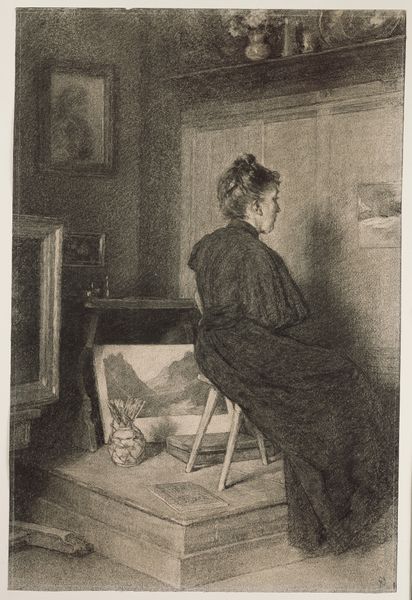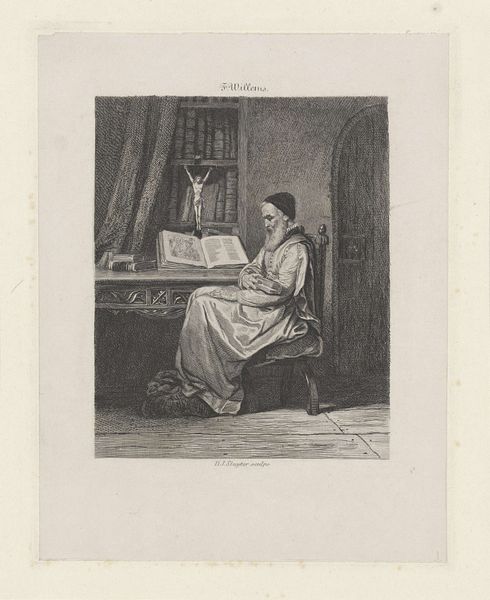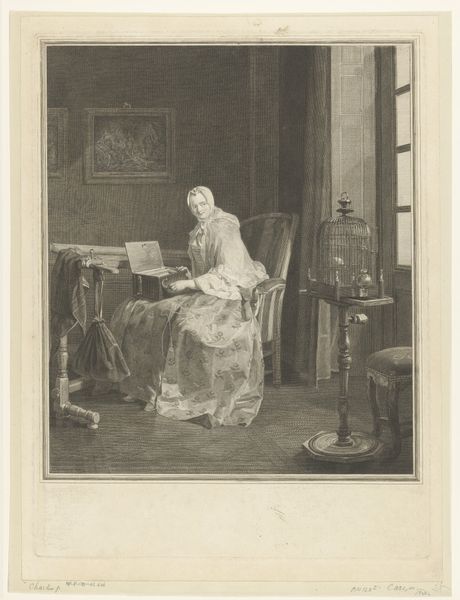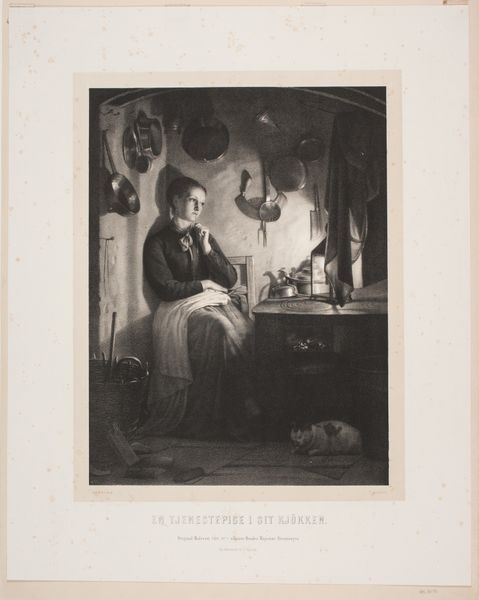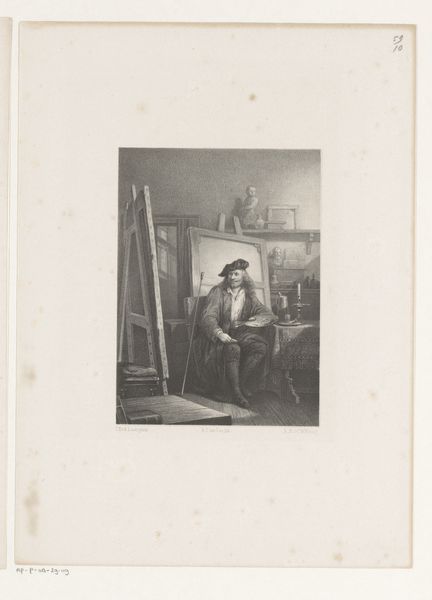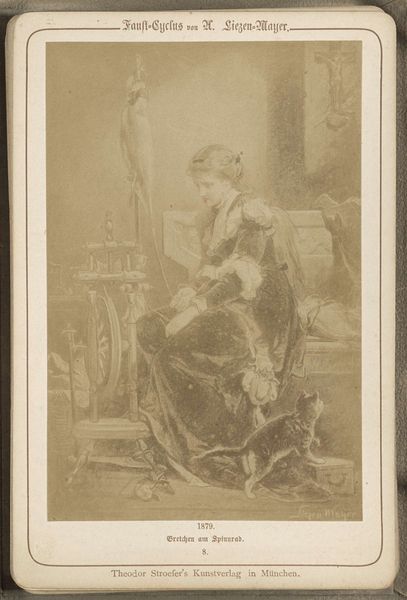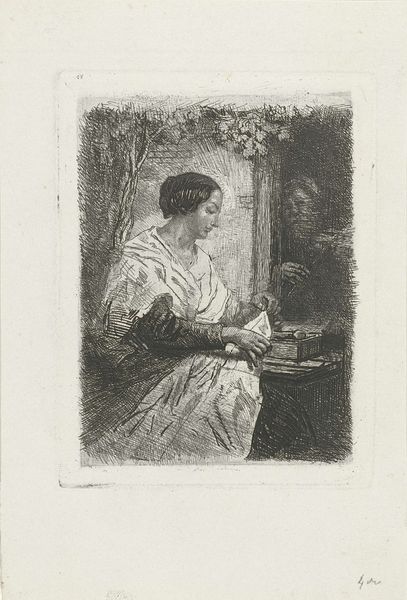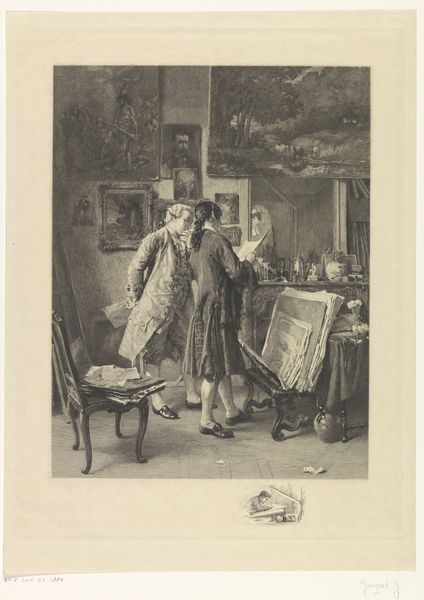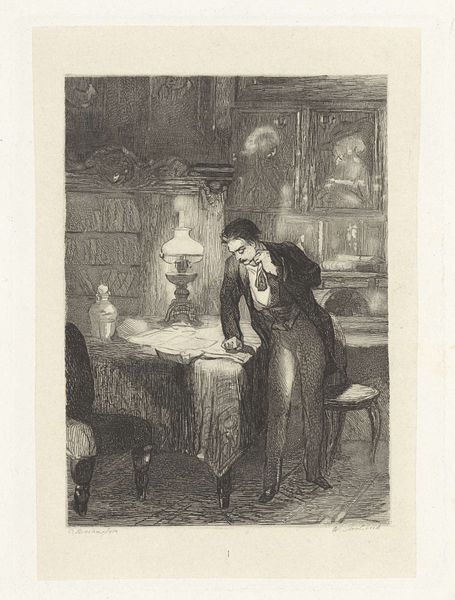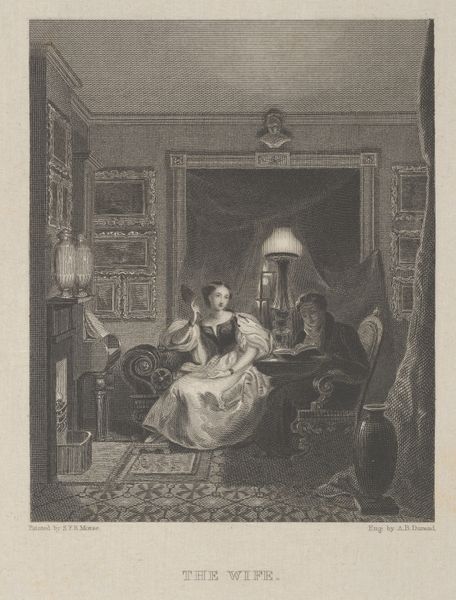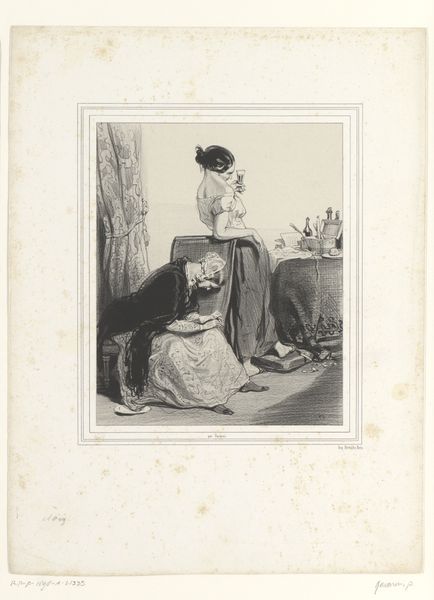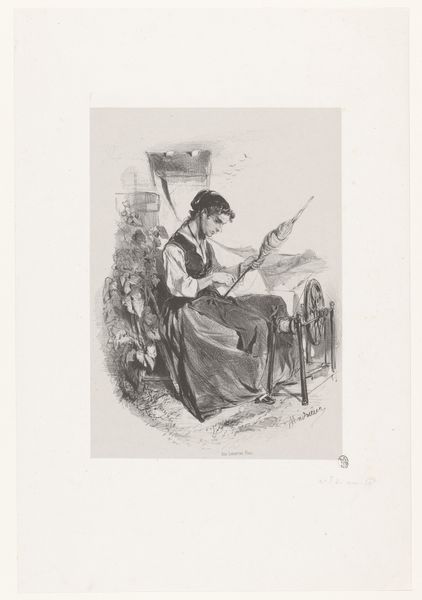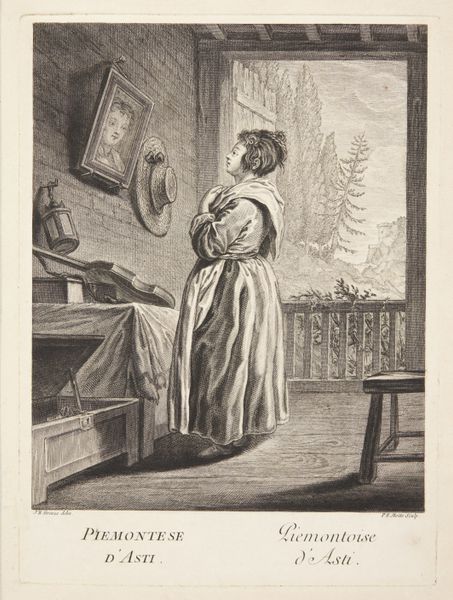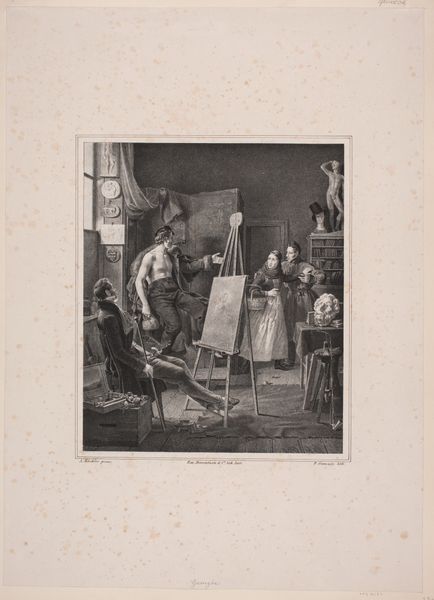
drawing, etching, paper, engraving
#
portrait
#
drawing
#
etching
#
paper
#
19th century
#
genre-painting
#
academic-art
#
engraving
#
realism
Dimensions: height 150 mm, width 98 mm
Copyright: Rijks Museum: Open Domain
Curator: Let’s take a look at "Vrouw in een schildersatelier", or "Woman in a Painter's Studio," an etching and engraving on paper by Willem Steelink from 1871. Editor: It strikes me as quiet and self-contained, a private moment. The artist seems to be caught in a pensive mood amid the tools and trappings of her trade. Curator: Indeed. Steelink renders this intimate scene through the careful layering of etched and engraved lines. Note how the varying densities create tonal depth, mimicking the light falling across the textures within the studio. Paper as a readily available and affordable medium suggests a widespread appreciation of art, while techniques like etching and engraving imply repetition. It asks us to consider issues of accessibility, labor, and reproduction. Editor: I see that repetition as symbolic of the artistic process itself. The woman is surrounded by images: finished works on the wall, canvases stacked, prints in her hands. Each represents a stage, a visual echo of ideas being refined and made manifest, pointing to the labor, dedication, and repetition involved. It feels almost ritualistic. Note the portraits—they evoke a dialogue across time, the echoes of other souls. Curator: Excellent point. Consider also the social context. By depicting a woman within the traditionally male sphere of an artist’s studio, the image challenges established gender norms related to labor and intellectual property. The material conditions reveal the increasing visibility and agency of women engaging in artistic professions in the nineteenth century. Editor: And those subtle clues about her personal sphere -- the arrangement of her garments on the chair, the framed images themselves, could be windows into the sitter's personality and the society that informed her visual vocabulary. They are laden with symbolism, each piece subtly amplifying our sense of her. Curator: The careful detail really brings those aspects into sharp relief, and reminds us to always ask, how are the materials utilized to express broader truths? Editor: Precisely. The composition gives me a deep appreciation of the weight of imagery, even in a space supposedly devoted to the act of its creation. Curator: Looking closely reveals the intersections of gender, labor, and artistry encoded into seemingly straightforward scenes, made tangible through simple media like paper, etching, and engraving. Editor: And I'm left pondering about the enduring fascination with the image, the artistic tradition echoing from this moment captured.
Comments
No comments
Be the first to comment and join the conversation on the ultimate creative platform.
